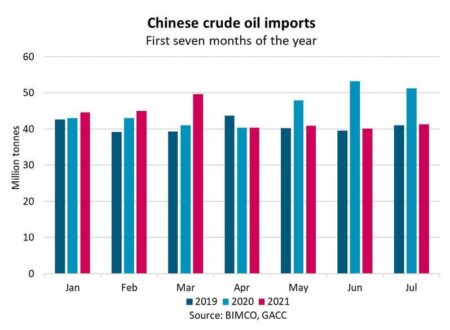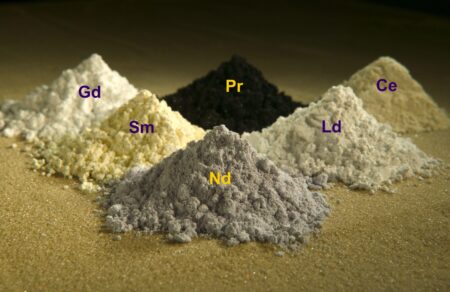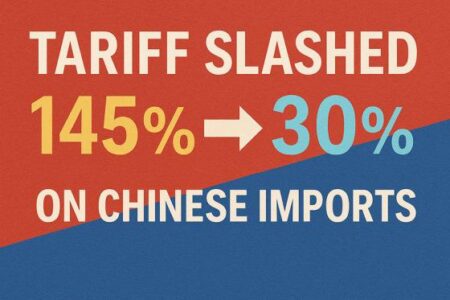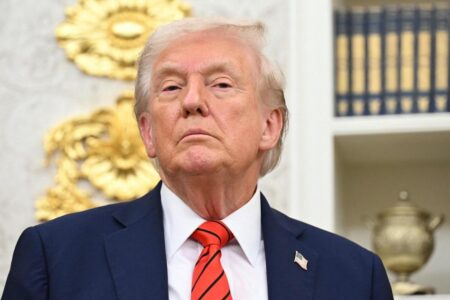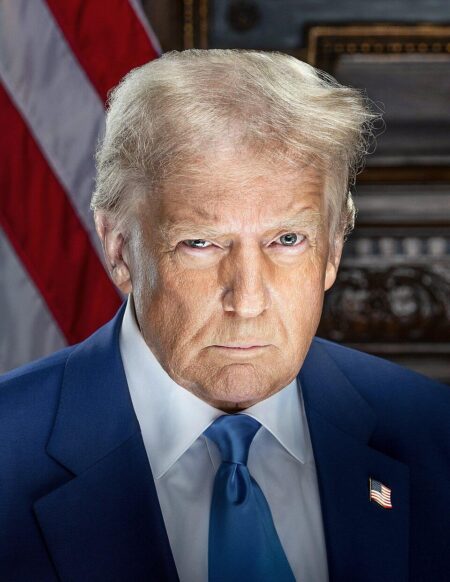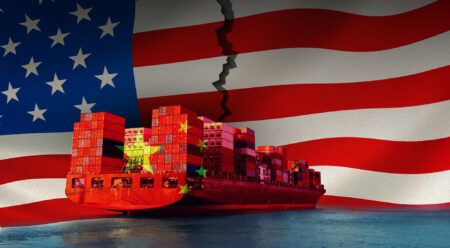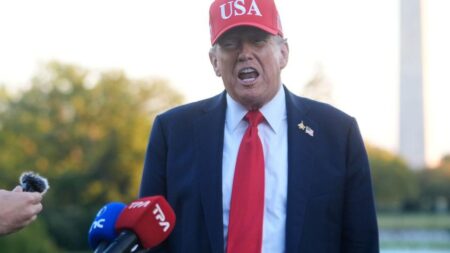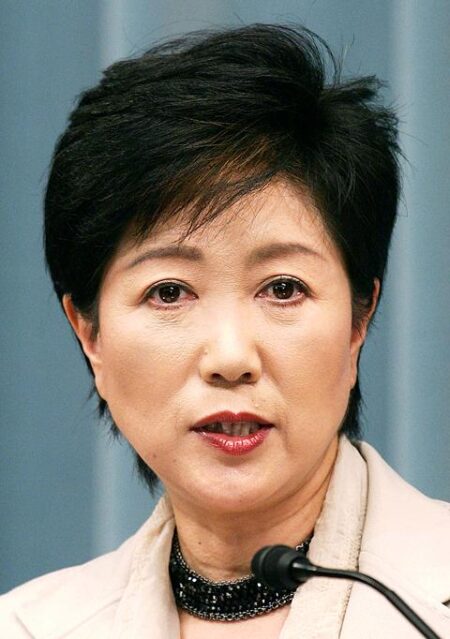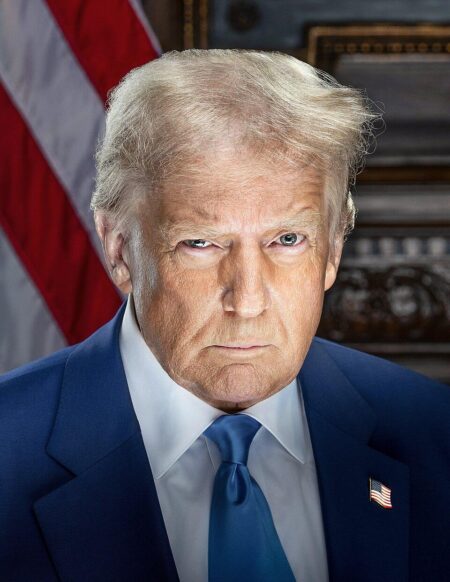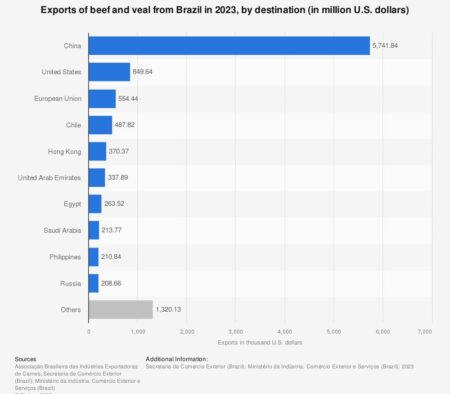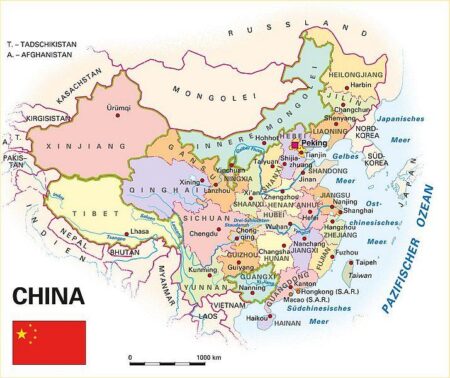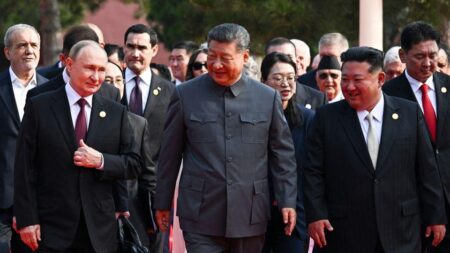Dow Jones futures soared as President Trump signaled an “eternity” stance before imposing a staggering 100% tariff on Chinese goods, igniting fierce trade tensions and sending shockwaves through the markets
Browsing: China
China’s crude oil imports in September rose by 3.9% compared to last year, though they slipped 4.5% from August, Reuters reports. This slight year-on-year gain paired with a monthly decline reveals the shifting demand and dynamic market forces shaping the industry
Rare earth minerals, essential for advanced electronics and national defense, have become the focal point of Trump’s trade threats against China. As China controls the vast majority of their global supply, these minerals now serve as a critical leverage in the intensifying US-China showdown
Former President Donald Trump has just unveiled a bold new strategy: a sweeping 100% tariff on Chinese goods, set to take effect next month. This aggressive move aims to intensify trade pressure amid escalating U.S.-China tensions, sending shockwaves through key industries and shaking up the flow of imports
President Trump has just unveiled a bold new strategy: beginning this November, every Chinese import will be hit with an extra 100% tariff. This striking escalation intensifies trade tensions and piles immense pressure on China amid crucial negotiations, sending shockwaves through global markets and businesses around the world
Former President Donald Trump has announced a daring move to impose a staggering 100% tariff on all Chinese imports, ramping up the trade battle between the U.S. and China, NBC News reports. This bold strategy aims to directly confront trade imbalances and protect American industries from overseas rivals
The U.S. is joining forces with Finland to overcome its Arctic icebreaker shortage, countering Russia and China’s expanding influence in the polar region. This collaboration aims to boost America’s strategic presence in the rapidly changing Arctic frontier
Markets plunged sharply after former President Trump announced a daring 100% tariff on Chinese goods, doubling the existing rates. This bold escalation has intensified trade tensions, rattling the global economy with far-reaching impact
Wall Street plunged sharply in its steepest slide since April, as former President Trump’s threat to impose new tariffs on China escalated trade tensions, sending shockwaves through the market and stoking fears of an impending economic slowdown
Former President Trump has fired a bold warning shot, threatening fierce trade war retaliation after China rolled out new restrictions on rare earth exports. This dramatic move escalates the high-stakes battle over vital mineral supplies that fuel U.S. technology and defense industries
Japan’s first female prime minister boldly adopts a hawkish stance on China and Taiwan, signaling a decisive shift toward a stronger, more assertive regional policy. Her leadership ushers in a groundbreaking transformation in Tokyo’s diplomatic and defense strategy
Former President Trump calls for fair play as the US intensifies efforts to pressure China into avoiding flights over Russia, spotlighting worries about an unlevel playing field. This move challenges Beijing airlines’ growing control over key global air routes
The world’s tallest bridge has just revealed a breathtaking glass cafĂ© perched 2,600 feet above the ground, inviting visitors to savor stunning panoramic views. This architectural marvel combines thrilling heights with an unforgettable dining experience like no other
Brazil’s beef exports to China have soared, fueled by U.S. tariffs introduced during the Trump era that are reshaping global trade. This dramatic shift highlights how protectionist policies are steering demand away from traditional markets, opening exciting new doors for South American suppliers
The Information Technology and Innovation Foundation warns that China may exploit Britain’s choice to avoid officially branding it as an enemy, leveraging this ambiguity to advance its strategic and technological goals
Chinese President Xi Jinping is leading the charge with the new five-year plan, driving a bold vision of innovation, self-reliance, and sustainable growth. His dynamic leadership underscores Beijing’s unwavering commitment to navigating global uncertainties with confidence and strength
Opinion | Four pivotal moments have driven China’s extraordinary economic surge, from revolutionary market reforms to its smooth entry into the global trade arena. South China Morning Post explores how a twist of fate played a crucial role in powering this incredible transformation
The UK is facing intense criticism for underestimating the threat of Chinese espionage, as the Washington Examiner exposes how British authorities might be inadvertently aiding Chinese spies by failing to fully grasp the gravity of these security dangers
China is at the forefront of innovation with groundbreaking “typhoon-proof” wind farms lining its coastline, designed to withstand the most powerful storms. These state-of-the-art installations ensure a steady flow of renewable energy, even as extreme weather events grow more frequent and severe
Brazil’s beef exports to China skyrocketed by 38% in September, driven by US tariffs that have made American meat less competitive, Reuters reports. This dramatic surge highlights the shifting dynamics of global trade amid ongoing US-China tensions


